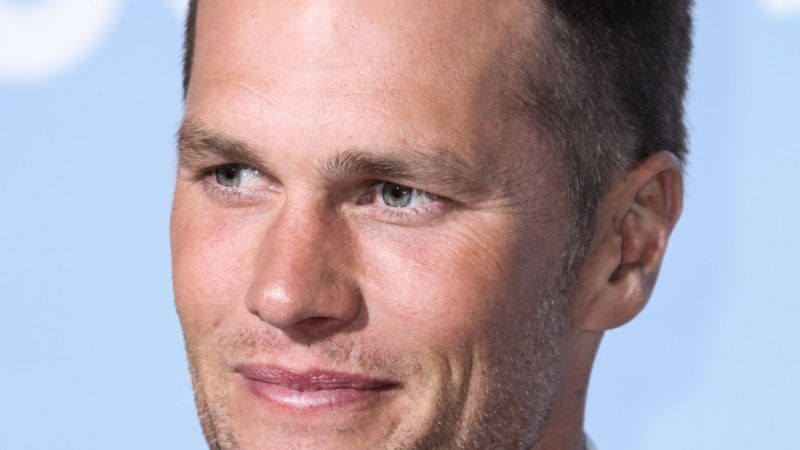A Cop Shot a 10-Year-Old and Got Qualified Immunity. Tom Brady and 1,400 Other Pro Athletes Want To Fix That.
Citing work from Reason, players and coaches from the NFL, NBA, and MLB are urging Congress to end qualified immunity.

Qualified immunity has gone from a little-known issue to problem du jour—and for good reason. The legal doctrine allows public officials, including police officers, to violate your rights without fear of recourse, if those rights have not been spelled out somewhere by a preexisting court precedent.
Now this doctrine has drawn the ire of the Players Coalition, a group made up of current and former athletes and coaches from the National Football League, the National Basketball Association, and Major League Baseball. Members of the group have sent a letter to Congress this week urging lawmakers to support the Ending Qualified Immunity Act, a bill introduced by Rep. Justin Amash (L–Mich.).
"The Supreme Court has caused irreparable harm to public trust by creating and then expanding the doctrine of qualified immunity, which often exempts police officers and others from liability, even for shocking abuse," the letter reads. The 1,400 figures signing the letter include Tom Brady, Drew Brees, Steve Kerr, Odell Beckham Jr., and Greg Popovich.
The letter details several cases they find particularly egregious, and it cites a couple of my Reason stories in the process. "The 9th Circuit applied the doctrine to two officers who allegedly stole $225,000 while executing a search warrant," the authors write. "The Eleventh Circuit applied the doctrine to protect an officer who unintentionally shot a ten-year old while firing at the family dog (who, much like the child, posed no threat). The list of officers who suffered no consequences because of this doctrine could fill a law book."
Their reference to the 9th Circuit decision includes a link to my May article detailing the Supreme Court's decision not to hear the case. That 9th Circuit ruling epitomizes the perverse nature of qualified immunity: The unanimous panel wrote that "the City Officers ought to have recognized that the alleged theft was morally wrong" but concluded that they "did not have clear notice that it violated the Fourth Amendment." Put more plainly, because no court precedent had yet established that stealing infringes on someone's rights, the officers were off the hook.
Their reference to the other case includes a link to my July article about a sheriff's deputy in Coffee County, Georgia, who shot a 10-year-old boy while aiming at the family's nonthreatening dog. The cop did so while in pursuit of a suspect who had no relation to the boy or his dog. Because there was no case law with a near-identical scenario, the deputy received qualified immunity, leaving the boy's mother no legal recourse to sue for medical expenses. The Supreme Court has not yet decided if they will hear the case.
"When police officers kill an unarmed man, when they beat a woman, or when they shoot a child, the people of this country must have a way to hold them accountable in a court of law," the letter reads. "And officers must know that if they act in such a manner, there will be repercussions. A legal system that does not provide such a recourse is an illegitimate one."

Show Comments (77)